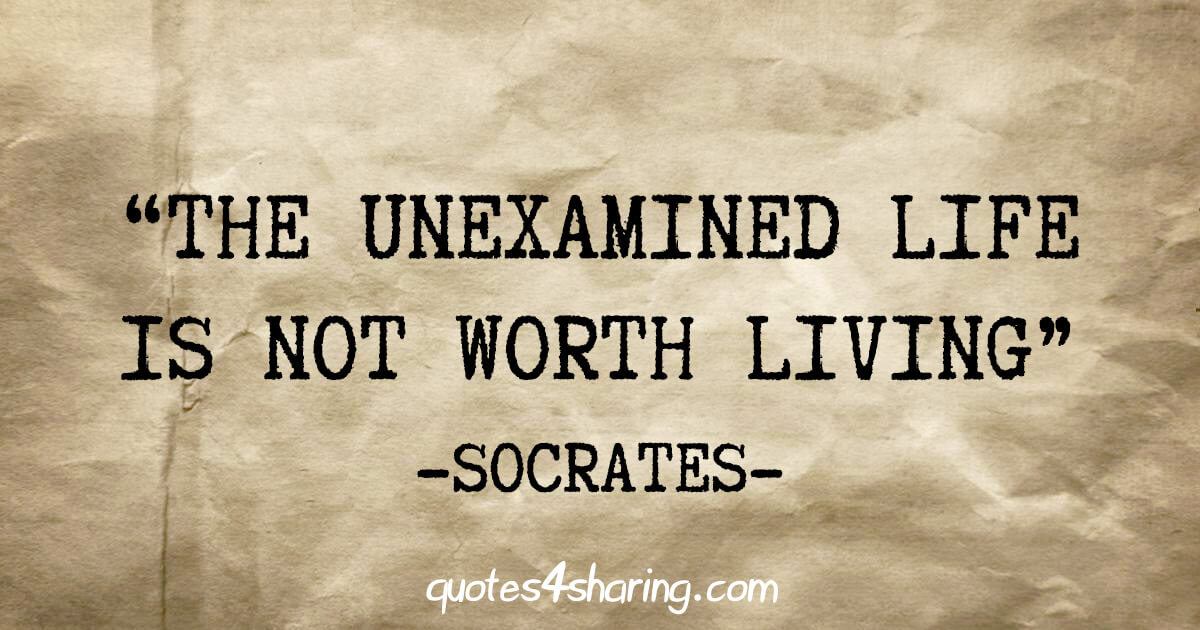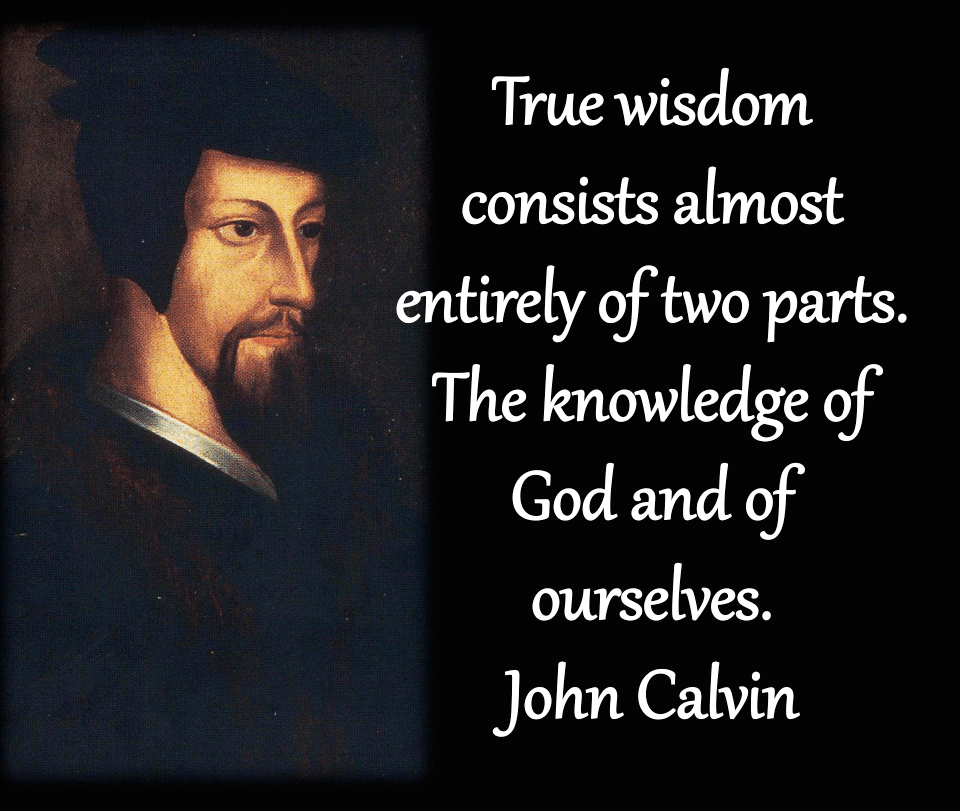
Or is it?
I believe in balance and rarely in set answers, in yes or no, either/or, binary choice etc.
Being human is complex.
We are rational and yet also driven by emotion, by what we sense, what we feel.
So, absolutely let us look at what Socrates meant and then consider what it means for leadership in business and organisations then consider the value of balance.
Fundamentally, Socrates meant this to reference the inherent nobility of a life lived conscious of our purpose in life.
As John Calvin, Protestant reformed said in the 16th century:

As another well-known quote goes (as often, attributed to Mark Twain, but in reality of no known provenance):
“The two most important days in your life
are the day you are born and the day you find out why.”
As Brian Rice puts it in a well-considered blog:
“In the ancient philosophical traditions of Greece and Rome, true happiness was a matter of discovering the ways of purpose, personal development of one’s potential, growth in virtue and living an integrated life. The Hebrew tradition called it WISDOM. The New Testament moved to profound and beautiful ways of understanding wisdom in the presence and person of Jesus Christ”
So, from a leadership standpoint, I would put it “get clear on the WHY and the HOW is easy”. I choose to only work with Purpose-Led leaders and organisations and often work with them individually and organisationally to look at their “WHY” (Purpose, Vision), then their WHAT (strategies, contextual drivers), and then occasionally their HOW (and yes, Mission is at the HOW level, folks!).
At the same time, where an individual or organisation is overly focussed on WHY, WHAT, or HOW, it is all too easy to lose sight of what is right in front of us in the present.
I talked yesterday and the day before about Serendipity and finished yesterday’s post with the idea that we can choose to: “design and structure..life and presence to have… “happy, fortuitous, unexpected discoveries” over and over again.”
I talked about having only sufficient structure to allow flow, so this then brings us back to one more key element to balance the Socratic pursuit of examing our life (or business, or organisation), and that is to be present.
Presence is what allows us to connect to the moment, the opportunity, to a feeling, an event.
On an individual basis, where we have examined our life to sufficient to be clear on the philosophical questions in life such as why we are here, who we are, what are we here to do etc, then we have a different opportunity.
We can then, with that “examined life” knowledge within us, shift to being truly present to each moment. “We are human beings, not human doings”, so when we are present we can experience what are called “peak moments” over and over, or what the ancient philosophers might have called happiness.
In business, for now, I recommend two things.
First, once you are clear on the “why” of a business, look for simple and measurable ways to recognise that in the day to day of the business and the people in it, then capture and tell stories. There are few things in life with the power of story-telling when it comes to connecting people to being “on purpose”.
Second, again once you are clear on the “why” of the business, then link that to whatever you are considering around innovation in your business. Design for serendipities, which includes the idea of presence.
Examine life, and also be present to it!
